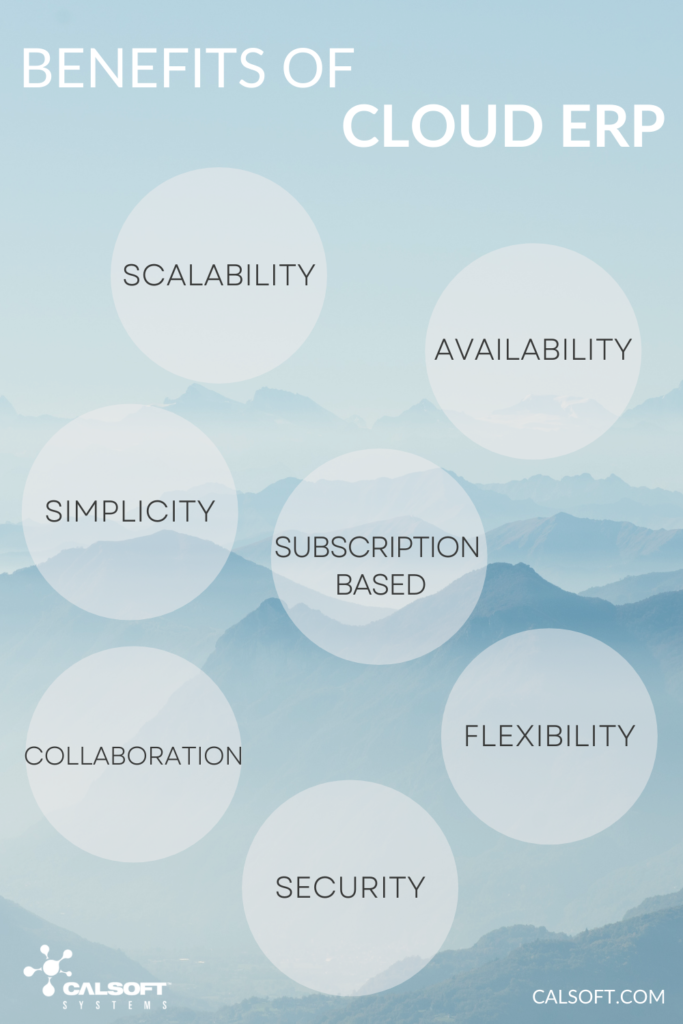Digital transformation is about rethinking the way you bring together people, data, and processes to create an accelerated operational process that is more productive.
Companies must constantly go against competition and should consider accepting digital transformation in this shifting market to get ahead of the curve.
When you go digital, enhanced productivity is just the beginning. Microsoft Dynamics 365, a powerful cloud-based business application platform, plays a pivotal role in accelerating this transformation. In this blog post, we will explore how Microsoft Dynamics 365, as part of Microsoft’s digital transformation portfolio, can drive innovation, improve operational efficiency, and deliver exceptional customer experiences for your organization.
Challenges faced by organizations when they don’t modernize
In the past, businesses have often chosen self-sustained ERP solutions to keep everything in-house. This is slowly changing because it can increase the cost by having your own server space, IT department, and your own program and databases. It restrains capital and resources and makes your business slow and uncertain.
When organizations fail to modernize their systems, they often face compatibility issues with newer technologies and software. As technology advances at a rapid pace, older systems become outdated and incompatible with the latest tools and platforms. This can result in limited integration capabilities, hindering seamless communication and collaboration between different departments or external stakeholders.
Another challenge is the lack of agility and flexibility. Outdated ERP systems are typically rigid and inflexible, making it difficult to adapt to changing market demands or business needs. This can lead to inefficiencies, delays in decision-making, and missed opportunities. In today’s fast-paced business environment, organizations need to be able to respond quickly to evolving customer expectations, market trends, and competitive pressures.
Moreover, the absence of modernization can also result in poor data management and analysis. Outdated systems often lack advanced analytics capabilities, making it challenging to derive meaningful insights from the vast amount of data that organizations generate. This can impede data-driven decision-making and hinder strategic planning, potentially putting the organization at a disadvantage compared to competitors who leverage data analytics for actionable insights.
Security vulnerabilities are yet another concern when organizations neglect to modernize their systems. Outdated software and infrastructure may lack essential security features and updates, leaving them susceptible to cyberattacks and data breaches. With the increasing frequency and sophistication of cyber threats, organizations need robust security measures and up-to-date technologies to safeguard sensitive data and protect their reputation.
Lastly, failing to embrace modernization can have a negative impact on employee productivity and satisfaction. Outdated systems often have clunky interfaces and inefficient workflows, which can frustrate employees and hinder their ability to perform tasks efficiently. This can lead to decreased morale, increased employee turnover, and difficulties in attracting top talent who prefer to work with modern tools and technologies.
Benefits of Microsoft cloud ERP
Cloud ERP, such as Microsoft Dynamics 365, offers numerous benefits to organizations seeking productivity enhancements and streamlined processes. Here are some key advantages of adopting a cloud-based ERP system:
- Scalability: Cloud ERP allows businesses to easily scale their operations up or down based on their changing needs. Whether the organization experiences rapid growth or needs to downsize, cloud-based solutions provide the flexibility to adjust resources and functionality accordingly. This scalability enables businesses to align their technology investments with their current requirements and future goals.
- Availability: Cloud ERP solutions provide anytime, anywhere access to critical business data and applications. This accessibility enables employees to work remotely, access information on the go, and collaborate seamlessly across different locations. Whether it’s sales representatives accessing customer data in the field or managers reviewing real-time reports from a mobile device, cloud ERP empowers organizations to operate efficiently and make informed decisions regardless of their physical location.
- Collaboration: Cloud ERP fosters improved collaboration among employees and departments. It enables real-time data sharing, allowing multiple stakeholders to access and update information simultaneously. This streamlined collaboration reduces silos and improves cross-functional communication, leading to better coordination, increased efficiency, and faster decision-making.
- Flexibility: Organizations have the ability to scale their operations up or down based on their evolving requirements. Whether they experience sudden growth or need to streamline operations, cloud ERP offers the flexibility to adapt quickly. Organizations can easily add or remove users, allocate additional storage capacity, or incorporate new modules and features as their needs change. This scalability empowers businesses to align their technology investments with their current demands, avoiding overprovisioning or underutilization of resources.
- Security: Cloud ERP solutions offer robust security measures to protect sensitive data, providing peace of mind even in the face of lost or stolen devices. With cloud ERP, data is securely stored in the cloud, reducing the risk of unauthorized access or data breaches. Cloud service providers employ advanced encryption techniques and stringent access controls to ensure data confidentiality and integrity.
- Automatic Updates and Maintenance: Cloud ERP providers handle system updates, patches, and maintenance tasks, ensuring that organizations always have access to the latest features and security enhancements. This eliminates the burden of manual upgrades and system maintenance, freeing up IT resources to focus on more strategic initiatives. Additionally, cloud ERP vendors often have robust security measures in place, safeguarding critical business data against potential threats.

Understanding the power of Microsoft Digital Transformation with Dynamics 365
Microsoft Dynamics 365 is a comprehensive cloud-based solution that brings together CRM, ERP, HCM, and Power BI reports in a single unified platform. With its wide range of functionalities, Microsoft Dynamics 365 empowers your company to seamlessly transition into the digital space and drive transformative growth.
By harnessing the power of Microsoft Dynamics 365, your business gains access to a secure and robust environment. With stringent security measures and industry-leading data protection protocols, Dynamics 365 ensures the confidentiality, integrity, and availability of your critical business information. This level of security instills confidence in your customers and stakeholders, enabling you to operate in a trusted and compliant manner.
Across industries and around the world, organizations are leveraging Microsoft Dynamics 365 to create meaningful impact faster. The versatility and scalability of the platform make it adaptable to various business needs, enabling companies to break down barriers and overcome challenges. Whether you need to optimize customer relationships, streamline financial operations, manage human capital, or derive insights from data, Dynamics 365 provides the tools and capabilities to drive innovation and propel your business forward.
With Microsoft Dynamics 365, your company can leverage the power of Microsoft digital transformation to create meaningful impact, break down barriers, adapt to change, and innovate your business.
Here are a few benefits and reasons why you should integrate Microsoft Dynamics 365 to accelerate your company’s digital transformation.
1. Integrate latest technologies
Microsoft Dynamics 365 integrates several new technologies such as Power BI, Azure Machine Learning, Cortana Intelligence, and IoT to streamline enterprise operations and transform processes.
2. Unify multiple business applications
Microsoft Dynamics 365 enterprise-level business applications such as ERP, CRM, and Office 365 enable companies to avail these powerful solutions through a single platform.
3. Enhanced productivity
Having all the business solutions and technologies in one place gives solution users the flexibility and convenience to have a single point of reference to quickly access, navigate, and locate information. This saves time and enhances the productivity of employees.
4. Customize business processes with integration
Microsoft D365 is designed to integrate with other business applications and tools, enabling seamless data exchange and process automation. This integration capability allows organizations to connect various systems such as CRM, supply chain management, e-commerce platforms, and more, resulting in a unified and holistic view of business operations.
5. Improve customer engagement
Dynamics 365 offers all information related to customers accessible in one place. Organizations can gain key customer insights and provide enhanced customer experience, personalized to their interests.
6. Enhanced flexibility
Enterprises can cater to the changing demands of customers by leveraging a variety of applications for different roles such as Sales and Marketing, Finance, Customer Service, among others.
7. Subscription-based
Traditional on-premises ERP systems often require significant upfront investments in hardware, infrastructure, and IT resources. Microsoft ERP typically operates on a subscription model, eliminating the need for costly capital expenditures. By shifting to a pay-as-you-go pricing structure, organizations can reduce initial costs and have predictable monthly expenses. Additionally, Microsoft cloud ERP eliminates the need for maintaining on-site servers and IT infrastructure, resulting in reduced maintenance and operational costs over time.
8. Advanced Analytics and Insights
Microsoft ERP integrates powerful analytics tools, enabling organizations to gain deeper insights from their data. With built-in reporting and analytics capabilities, businesses can generate meaningful reports, dashboards, and visualizations to monitor performance, identify trends, and make data-driven decisions. These advanced analytics capabilities help uncover hidden patterns, optimize processes, and drive continuous improvement across the organization.
Read more: What is Microsoft Dynamics 365?
The future of Microsoft Dynamics 365
The future of Microsoft Dynamics 365 is bright and filled with continuous innovation and advancement. As a leading player in the enterprise software market, Microsoft is committed to enhancing the capabilities of Dynamics 365 and keeping it at the forefront of digital transformation.
One key aspect of the future of Dynamics 365 is the increasing integration of artificial intelligence (AI) and machine learning (ML) technologies. Microsoft is investing heavily in AI-driven features and capabilities to empower businesses with intelligent automation, predictive analytics, and personalized experiences. AI-powered insights will enable organizations to make data-driven decisions, automate routine tasks, and deliver more personalized and proactive customer experiences.
Another focus of the future of Dynamics 365 is enhanced industry-specific solutions. Microsoft recognizes the unique needs and challenges of various industries and is working towards developing industry-specific functionalities and best practices within Dynamics 365. This industry focus allows businesses to leverage tailored solutions that address their specific requirements, compliance regulations, and operational complexities.
Microsoft is also prioritizing the seamless integration of Dynamics 365 with other Microsoft products and services. The integration of Dynamics 365 with the Microsoft Power Platform, Azure cloud services, Microsoft 365, and other Microsoft offerings creates a holistic ecosystem that enables organizations to leverage the full power of Microsoft’s technology stack. This integration enables data and process synchronization, seamless collaboration, and unified experiences across various Microsoft platforms.
The future of Dynamics 365 will also see a continued emphasis on user experience and ease of use. Microsoft is investing in improving the user interface, enhancing accessibility, and simplifying the configuration and customization processes. This focus on user-centric design will empower organizations to adopt and navigate Dynamics 365 more intuitively, reducing training time and driving user adoption.
About Calsoft Systems
Calsoft Systems is a trusted and experienced industry leader in providing comprehensive cloud-based ERP solutions. With a proven track record, we have established ourselves as the go-to partner for organizations seeking a seamless transition to the cloud and achieving their productivity goals.
As businesses recognize the importance of digital transformation, Calsoft Systems has emerged as a reliable ally, guiding organizations through the complex process of adopting cloud-based ERP solutions. Our deep expertise and extensive experience enable us to understand the unique needs and challenges of different industries, allowing us to provide tailored solutions that drive success.
Read our case studies from various industries.

